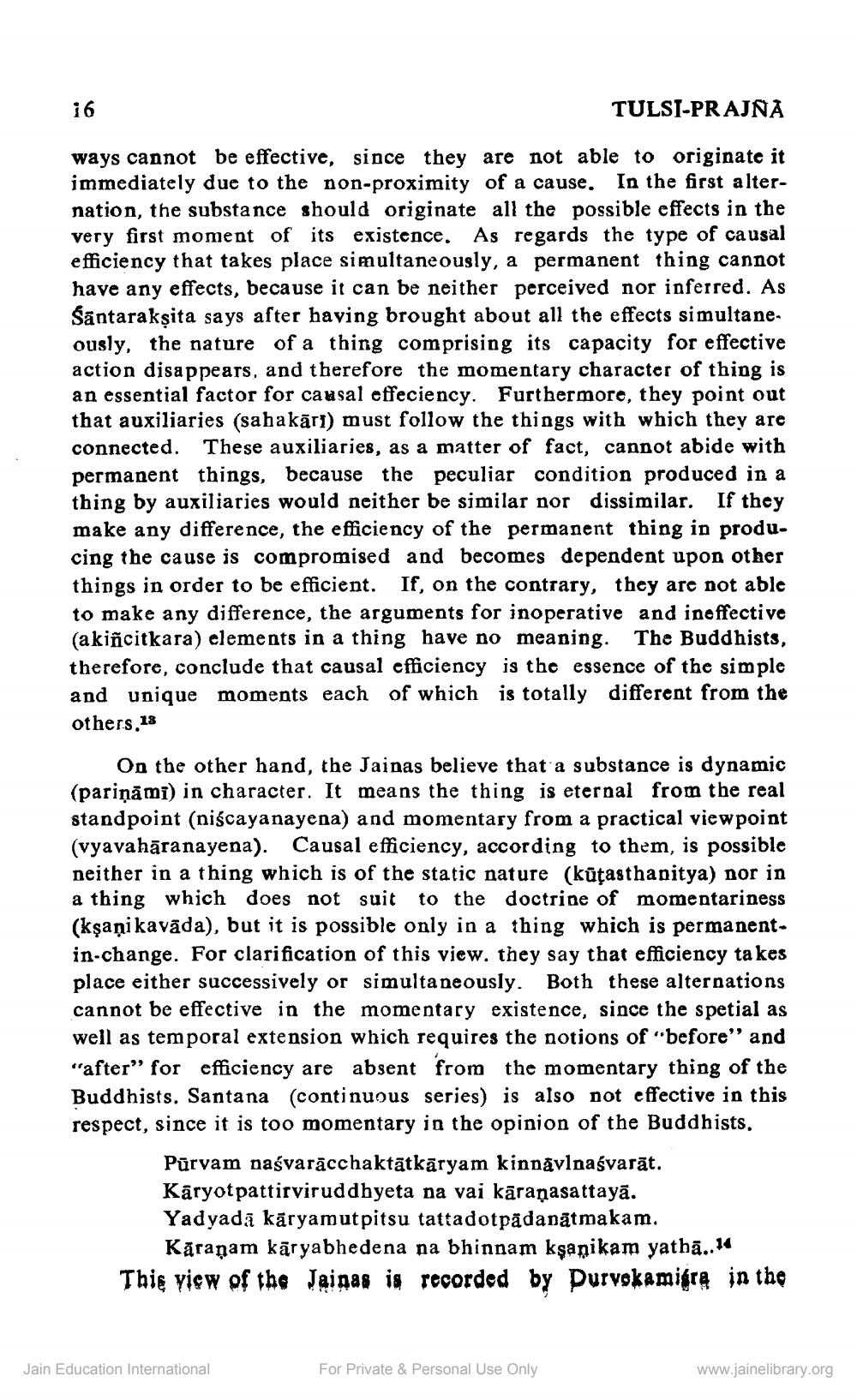________________
16
TULSI-PRAJNA
ways cannot be effective, since they are not able to originate it immediately due to the non-proximity of a cause. In the first alternation, the substance should originate all the possible effects in the very first moment of its existence. As regards the type of causal efficiency that takes place simultaneously, a permanent thing cannot have any effects, because it can be neither perceived nor inferred. As Šāntarakṣita says after having brought about all the effects simultane. ously, the nature of a thing comprising its capacity for effective action disappears, and therefore the momentary character of thing is an essential factor for causal effeciency. Furthermore, they point out that auxiliaries (saha kāri) must follow the things with which they are connected. These auxiliaries, as a matter of fact, cannot abide with permanent things, because the peculiar condition produced in a thing by auxiliaries would neither be similar nor dissimilar. If they make any difference, the efficiency of the permanent thing in producing the cause is compromised and becomes dependent upon other things in order to be efficient. If, on the contrary, they are not able to make any difference, the arguments for inoperative and ineffective (akiñcitkara) elements in a thing have no meaning. The Buddhists, therefore, conclude that causal efficiency is the essence of the simple and unique moments each of which is totally different from the others. 18
On the other hand, the Jainas believe that a substance is dynamic (parināmi) in character. It means the thing is eternal f standpoint (niścayanayena) and momentary from a practical viewpoint (vyavahāranayena). Causal efficiency, according to them, is possible neither in a thing which is of the static nature (kūtasthanitya) nor in a thing which does not suit to the doctrine of momentariness (kşaņikavāda), but it is possible only in a thing which is permanentin-change. For clarification of this view. they say that efficiency ta kes place either successively or simultaneously. Both these alternations cannot be effective in the momentary existence, since the spetial as well as temporal extension which requires the notions of "before" and "after" for efficiency are absent from the momentary thing of the
hists. Santana (continuous series) is also not effective in this respect, since it is too momentary in the opinion of the Buddhists.
Pūrvam naśvarācchaktātkāryam kinnävlnaśvarāt. Karyotpattirviruddhyeta na vai kāraṇasattayā. Yadyadā kāryamut pitsu tattadotpädanātmakam.
Kāraṇam kāryabhedena na bhinnam kşanikam yathā..14 Thię view of the Jaigas is recorded by Durvokamigre in the
Jain Education International
For Private & Personal Use Only
www.jainelibrary.org




